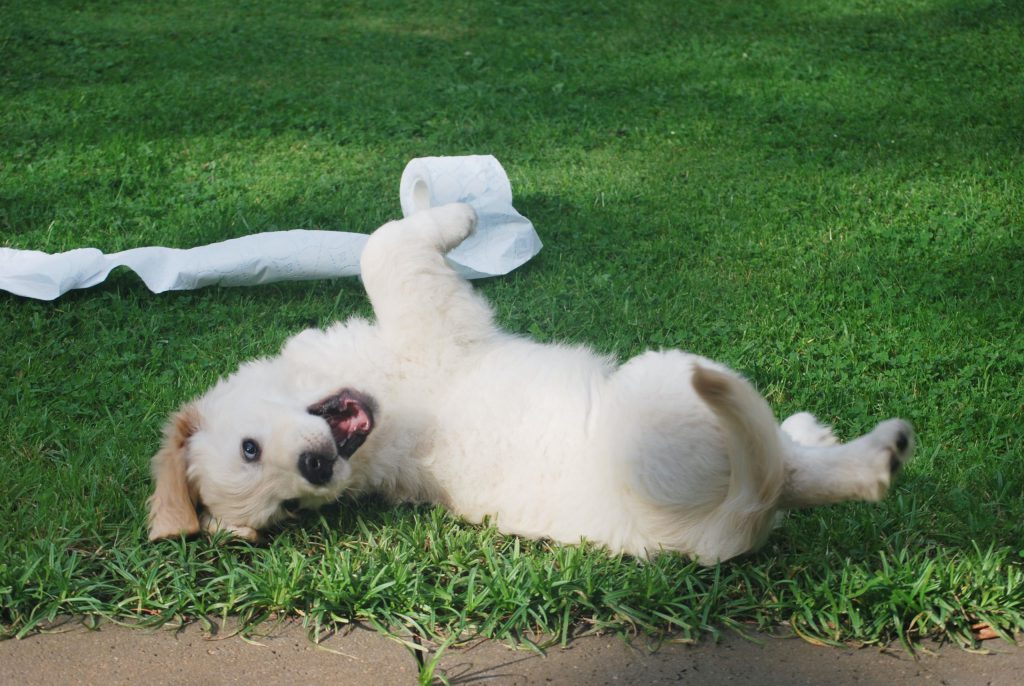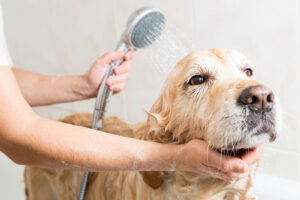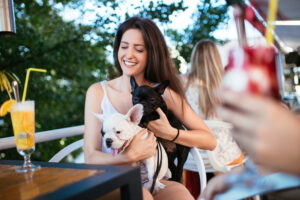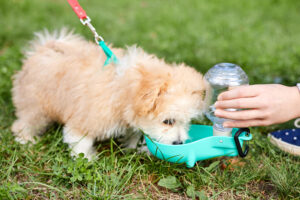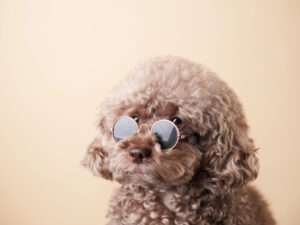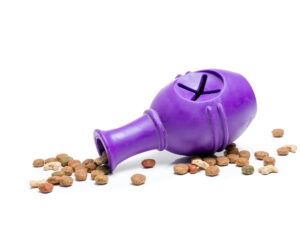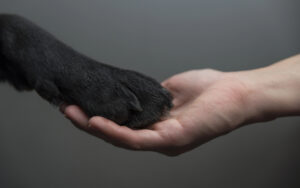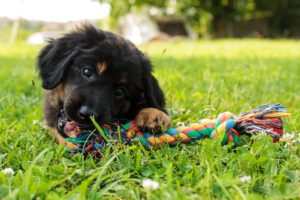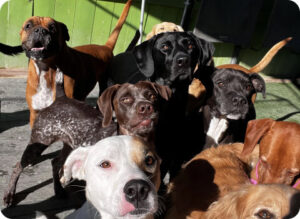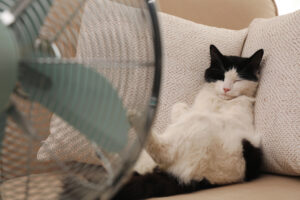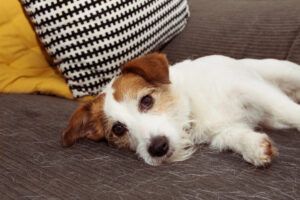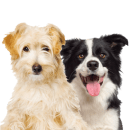Puppy training can seem like an intimidating task and you may not know where to start. Puppies are so full of energy and being in the new environment of your home can increase their energy and need to explore their new surroundings. While puppy training may not be an easy or simple task, we hope that the following tips will make the process easier for you.
Puppy Training Tips
Puppy training is an important part of raising a puppy and can begin as young as 7-8 weeks of age. It’s important to begin training as soon as possible in order to avoid allowing your puppy to develop bad habits that will be difficult to correct when he’s older.
It’s also helpful to get your puppy neutered or spayed when old enough because neutered and spayed dogs are less aggressive and more open to being trained. This will likely make puppy training an easier and more pleasant experience for both you and your puppy.
Decide Your “House Rules”
 Even before your puppy comes home, you should decide what the house rules will be for her. Decide if you want to allow her to sit on the couch, if there are any specific rooms in your home you don’t want her to enter, or where her eating area will be. Routine and consistency are very important parts of successful puppy training, so deciding what the house rules will be before your puppy comes home and consistently enforcing these rules will make things easier for your puppy.
Even before your puppy comes home, you should decide what the house rules will be for her. Decide if you want to allow her to sit on the couch, if there are any specific rooms in your home you don’t want her to enter, or where her eating area will be. Routine and consistency are very important parts of successful puppy training, so deciding what the house rules will be before your puppy comes home and consistently enforcing these rules will make things easier for your puppy.
In addition to this, it’s important that you make the rules very clear to your puppy, so there’s no confusion about which behaviors are good and which are bad. Positive reinforcement, which we’ll cover later, will play an important role in this.
Give Your Puppy Space & Help Him Relax
 In addition to consistency, creating structure and building a strong, trusting relationship between yourself and your puppy is essential in order to allow training to be successful. If your puppy feels that she can trust you, she will likely be much more willing to follow your commands, and of course, everyone wants to have a good relationship with their dog!
In addition to consistency, creating structure and building a strong, trusting relationship between yourself and your puppy is essential in order to allow training to be successful. If your puppy feels that she can trust you, she will likely be much more willing to follow your commands, and of course, everyone wants to have a good relationship with their dog!
Part of establishing trust and helping your puppy feel comfortable in your home is to give her a space of her own, usually in the form of a crate. This will allow your puppy to have a private sleeping space and give her the opportunity to get some alone time when she needs it. When first getting used to spending time alone in this space, reward your puppy when if remains calm and quiet.
A hot water bottle and ticking clock placed in this area may also help your puppy feel calm and relaxed in her private space. These items will mimic the warmth and heartbeat of her littermates and will help soothe her and put her at ease in her new home.
Set a Schedule
 Because consistency, structure, and routine are so important to the process of puppy training, you’ll need to set up a schedule for training your puppy and stick to it. This shouldn’t be too difficult because a puppy’s day should be structured around a schedule and routine anyway. He should be waking up, eating, and sleeping around the same time every day, even weekends, so building training into this schedule should be simple. The goal is to help your puppy adjust to living with you as well as to train him consistently.
Because consistency, structure, and routine are so important to the process of puppy training, you’ll need to set up a schedule for training your puppy and stick to it. This shouldn’t be too difficult because a puppy’s day should be structured around a schedule and routine anyway. He should be waking up, eating, and sleeping around the same time every day, even weekends, so building training into this schedule should be simple. The goal is to help your puppy adjust to living with you as well as to train him consistently.
Use Positive Reinforcement
Positive reinforcement is very important for successful puppy training. When your puppy successfully follows commands, you should make a big deal of celebrating his success through praise, toys, or treats. This will make it very clear to your puppy when he’s doing the right thing and it will encourage him to continue doing so.
 Reprimanding your puppy when he does something wrong is less effective than rewarding him when he does something right, so if your puppy engages in behavior you don’t like such as jumping, ignore him. Engaging with him while he’s jumping on you may give him the impression that you’re condoning his behavior, so it’s best to wait until he settles down before giving him attention. This will discourage this behavior by showing him that jumping will lead to him being ignored.
Reprimanding your puppy when he does something wrong is less effective than rewarding him when he does something right, so if your puppy engages in behavior you don’t like such as jumping, ignore him. Engaging with him while he’s jumping on you may give him the impression that you’re condoning his behavior, so it’s best to wait until he settles down before giving him attention. This will discourage this behavior by showing him that jumping will lead to him being ignored.
Another example of how to handle bad behavior is if your puppy gets into the habit of biting or nipping while playing. Pretending that the biting causes you a lot of pain is one way to get your puppy to stop this behavior. However, if that doesn’t work, you may want to stop the biting and simply ignore him. Showing your puppy that biting and nipping causes playtime to end will help him understand that this is behavior that should not continue.
Finally, you should always end your puppy training sessions with praise, playtime, or treats, because your puppy has worked hard throughout the session and this behavior should be rewarded. Training sessions should be a positive experience for your puppy and positive reinforcement is the best way to make sure that this is the case.
Socialize Your Puppy
 Socializing your puppy early on is another important part of puppy training because it will avoid the problem of having to work extra hard to train your dog to accept other dogs and people once she’s older.
Socializing your puppy early on is another important part of puppy training because it will avoid the problem of having to work extra hard to train your dog to accept other dogs and people once she’s older.
The best time to begin introducing your puppy to other dogs is around 2 to 4 months old. This is considered the best time because it’s the age when dogs generally accept animals, people, new places, and new experiences easily. You can start with playdates or puppy training classes, both of which are places where you can be sure that dogs are healthy and vaccinated.
During first encounters, it’s best to keep both dogs on a leash while they meet. This will allow you and the owner of the other dog to have more control over the situation.
If your puppy is shy and slow to jump in and play with other puppies, don’t worry and don’t push her to socialize before she’s ready. Making socialization a positive experience is important and pushing your puppy into situations she’s not ready for can cause fear or stress. Let your dog take her time and socialize when she’s ready, so she’ll always be ready for new people, dogs, and experiences.
 You’ll likely come across a lot of tips for successful puppy training and while training can seem difficult, the most important thing to keep in mind is that puppy training should be a positive, bonding experience between you and your puppy. Keeping this in mind will allow both you and your puppy to have a great time while training.
You’ll likely come across a lot of tips for successful puppy training and while training can seem difficult, the most important thing to keep in mind is that puppy training should be a positive, bonding experience between you and your puppy. Keeping this in mind will allow both you and your puppy to have a great time while training.
If you are in the San Diego area and looking for quality pet care services, including dog training you can rely on Fon Jon Pet Care. Contact Fon Jon Pet Care at 1-858-250-3601 or visit our site today and we will be happy to help you with your pet care service needs.




